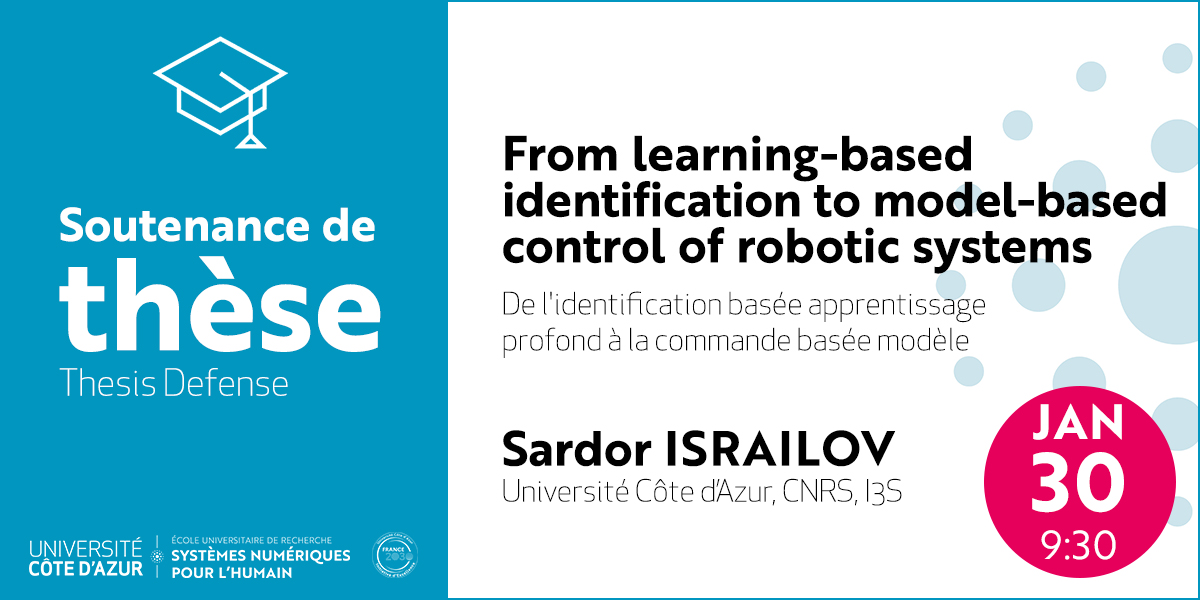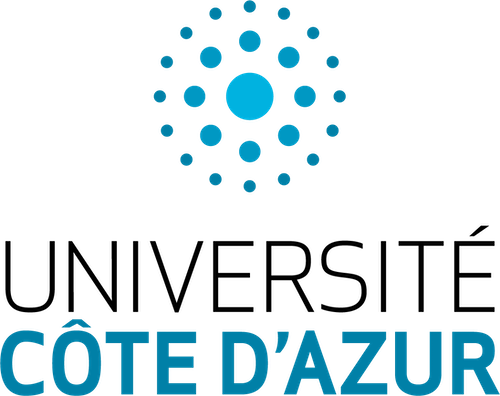Sardor ISRAILOV: From learning-based identification to model-based control of robotic systems
- IDEX
- Research
Published on January 23, 2024
–
Updated on January 30, 2024

Thesis Defense
Exploring underwater life, locating and recovering objects, detecting pollution... the applications for robotic fish are numerous. One of the major challenges remains controlling and maneuvering them remotely. This is the research topic of Sardor Israilov, who is defending his thesis funded by the EUR Systèmes Numériques pour l'Humain (Digital Systems for Humans) on Tuesday, January 30, 2024 at 9.30 AM.
The presentation will take at the following address: Laboratoire Inphyni - 17 rue Julien Lauprêtre, 06200 Nice and on Zoom (link here soon).The presentation will also be available soon on YouTube.
The thesis defense will be followed by a celebration in the same building.
- Thesis Reviewers:
- Frédéric Boyer, Professeur, IMT Atlantique
- Massimo Cencini, Professeur, CNR-ISC
- Thesis Examiners:
- Christophe Eloy, Professeur des Universités, Aix-Marseille Université
- Li Fu, Maître de conférences, École Centrale de Lyon
- David Filliat, Professeur, ENSTA Paris - Institut Polytechnique de Paris
- Supervisors:
- Guillaume Allibert, Professeur des Universités, Université Côte d'Azur
- Médéric Argentina, Professeur des Universités, Université Côte d'Azur
- Invited:
- Christophe Raufaste, Professeur des Universités, Université Côte d'Azur
Fish swimming remains a complex subject that is not yet fully understood due to the intersection of biology and fluid dynamics. Through years of evolution, organisms in nature have perfected their biological mechanisms to navigate efficiently in their environment and adapt to particular situations. Throughout history, mankind has been inspired by nature to innovate and develop nature-like systems. Biomimetic robotic fish, in particular, has a number of applications in the real world and its control is yet to be optimized. Deep Reinforcement Learning showed excellent results in control of robotic systems, where dynamics is too complex to be fully modeled and analyzed. In this thesis, we explored new venues of control of a biomimetic fish via reinforcement learning to effectively maximize the thrust and speed. However, to fully comprehend the newly-emerged data-based algorithms, we first studied the application of these methods on a standard benchmark of a control theory, the inverted pendulum with a cart. We demonstrated that deep Reinforcement Learning could control the system without any prior knowledge of the system, achieving performance comparable to traditional model-based control theory methods. In the third chapter, we focus on the undulatory swimming of a robotic fish, exploring various objectives and information sources for control. Our studies indicate that the thrust force of a robotic fish can be optimized using inputs from both force sensors and cameras as feedback for control. Our findings demonstrate that a square wave control with a particular frequency maximizes the thrust and we rationalize it using Pontryagin Maximum Principle. An appropriate model is established that shows an excellent agreement between simulation and experimental results. Subsequently, we concentrate on the speed maximization of a robotic fish both in several virtual environments and experiments using visual data. Once again, we find that deep Reinforcement Learning can find an excellent swimming gait with a square wave control that maximizes the swimming speed. isuelles.

